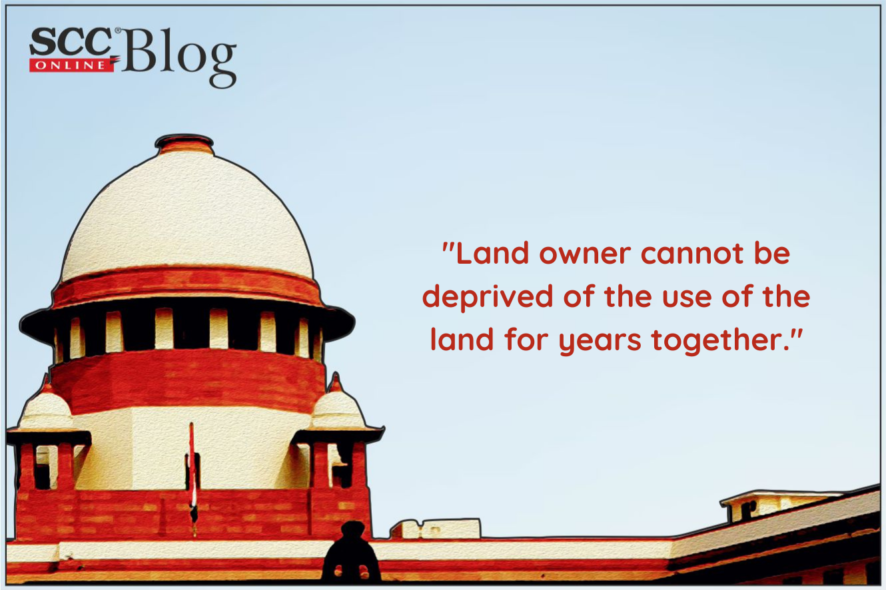Supreme Court: In a case where the Development Plan was finalized in the year 2002, but the same was never implemented nor any action was taken for acquisition of the land under the Land Acquisition Act, 1894, the bench of Hemant Gupta* and V Ramasubramanian, JJ has held that the Bombay High Court’s direction to acquire land within a period of one year is in contravention of the time line fixed under the Maharashtra Regional and Town Planning Act, 1966.
In the present case, in 2016 i.e. after the expiry of the ten years’ time line, the appellants issued notice under Section 127 of the Act so as to purchase the reserved land within one year of the date of the notice. The Bombay High Court held that the reservation of land in the Development Plan stands lapsed as no declaration under Section 126 of the Maharashtra Regional and Town Planning Act, 1966 was published. However, the Planning Authority was given one year time to acquire the land once reserved.
The Supreme Court, however, disagreed with the High Court’s view and held that once the Act does not contemplate any further period for acquisition, the Court cannot grant additional period for acquisition of land. The land was reserved for a public purpose way back in 2002. By such reservation, the land owner could not use the land for any other purpose for ten years. After the expiry of ten years, the land owner had served a notice calling upon the respondents to acquire the land but still the land was not acquired.
“The land owner cannot be deprived of the use of the land for years together. Once an embargo has been put on a land owner not to use the land in a particular manner, the said restriction cannot be kept open-ended for indefinite period.”
The Court observed that the Statute has provided a period of ten years to acquire the land under Section 126 of the Act. Additional one year is granted to the land owner to serve a notice for acquisition prior to the amendment by Maharashtra in 2015. Such time line is sacrosanct and has to be adhered to by the State or by the Authorities under the State. Hence,
“The State or its functionaries cannot be directed to acquire the land as the acquisition is on its satisfaction that the land is required for a public purpose. If the State was inactive for long number of years, the Courts would not issue direction for acquisition of land, which is exercise of power of the State to invoke its rights of eminent domain.”
Consequently, the direction to acquire the land within one year was set aside by the Court.
[Laxmikant v. State of Maharashtra, 2022 SCC OnLine SC 349, decided on 23.03.2022]






